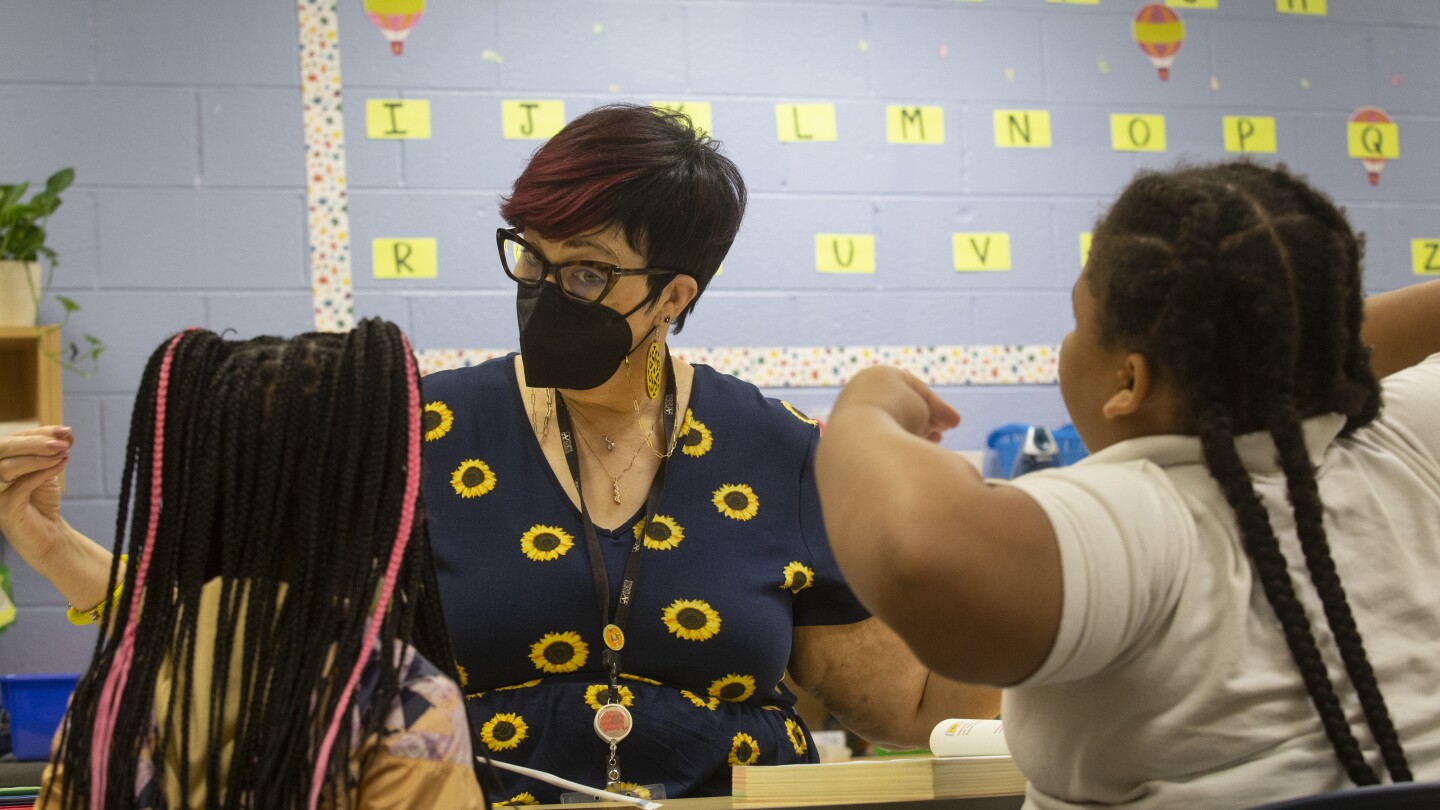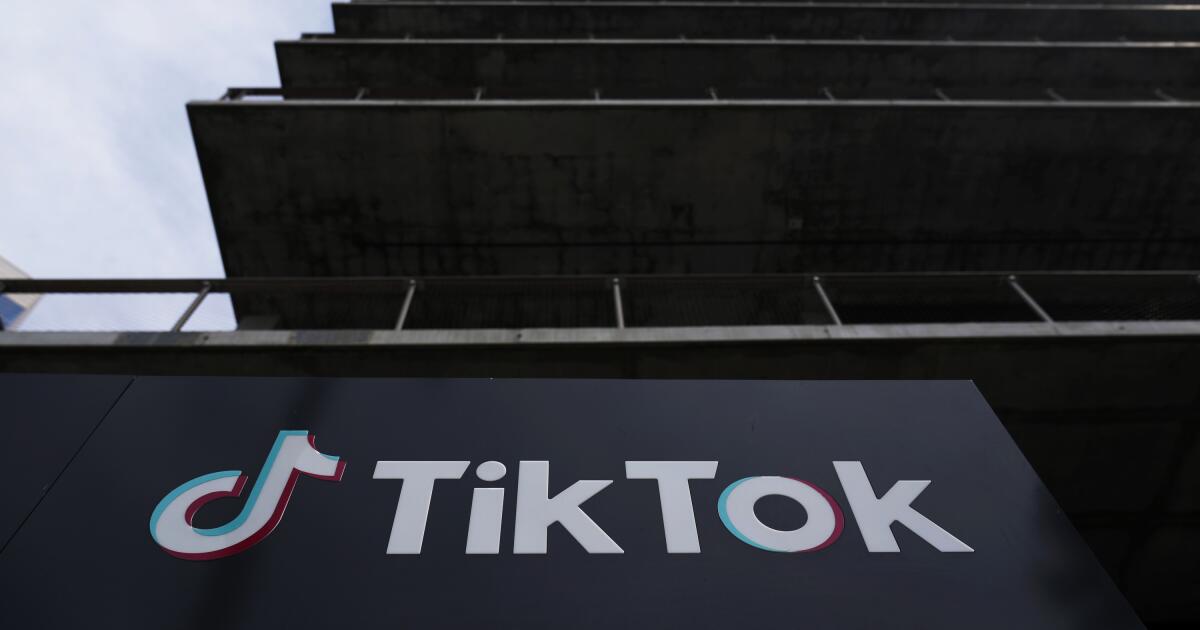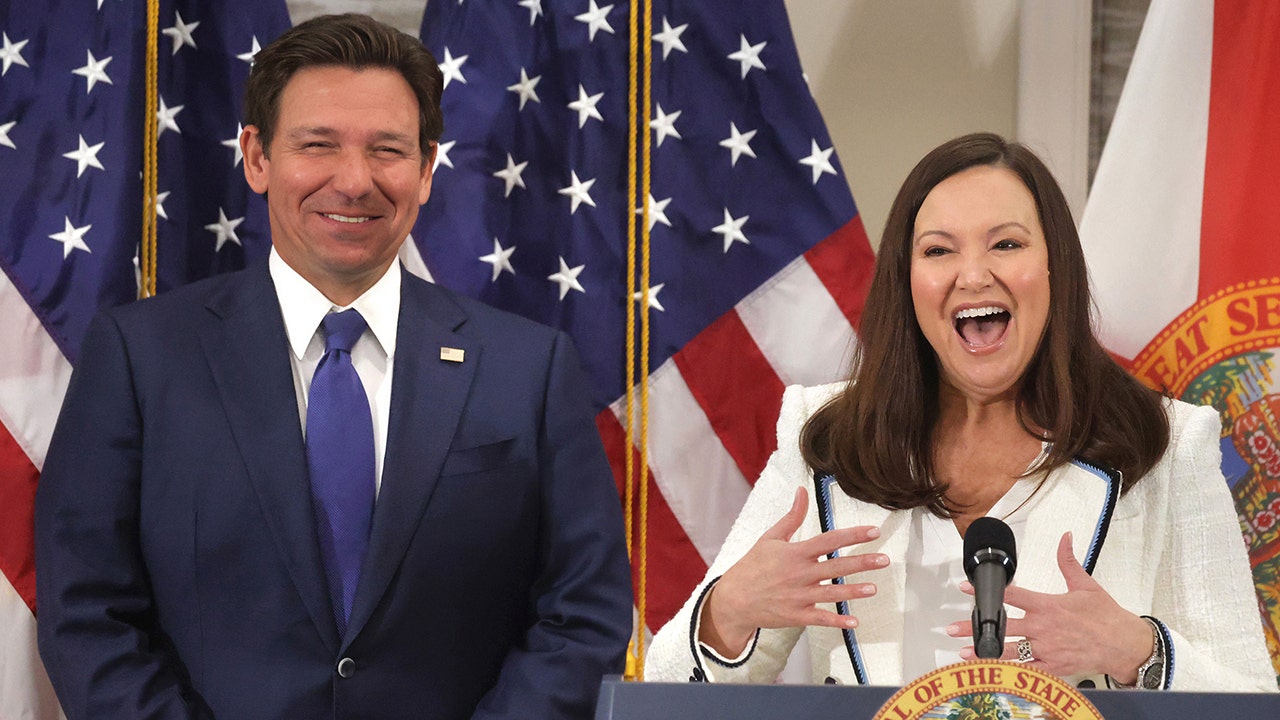Georgia
Georgia students inch ahead on state tests, but remain below pre-pandemic achievement levels

ATLANTA (AP) — Georgia students showed small improvements on state standardized tests in the 2022-2023 school year, but achievement remains below pre-pandemic levels, and slow progress suggests a full recovery could be years off.
The Georgia Department of Education released the annual Milestones test results Friday. Students in grades 3 through 8 as well as high schoolers take tests in math and English language arts, while a few grades take science and social studies tests. Federal law requires most of the tests.
Officials in the state Department of Education focused on the positive, saying more grade levels showed achievement increases than decreases.
“We definitely do see trends of holding steady or improving in ELA and math, especially at the elementary and middle school levels,” Allison Timberlake, deputy state superintendent for assessment and accountability, told reporters Thursday in a briefing.
Proficiency levels — the share of students meeting expectations for what they should know — averaged above 43% in English language arts and math in 2019, the last year before the pandemic. In 2023, they averaged around 39%, up about a percentage point on average from 2022.
The results show learning disruptions around COVID-19 have proved long-lasting, even though the vast majority of Georgia school districts offered in-person classes for all but about two months in the spring of 2020.
Of the 21 tests given across all grades and subjects, only seventh grade students in English language arts and eighth grade students in math scored at or above the same proficiency level as in 2019.
Achievement levels on four required high school tests in American literature and composition, algebra, biology and U.S. history generally declined, as did achievement levels for eighth grade students in science and social studies.
State officials said they are hiring 100 teachers to provide online tutoring to high school students, and also partnering with the AmeriCorps federal service program to provide math and reading tutoring to 5,000 students. Georgia is also expanding its offerings of formative assessments to help schools evaluate student achievement before the state tests. But many key decisions, including how to spend billions in federal pandemic aid, have largely been left to Georgia’s 180 school districts and independent charter schools.
Officials in the state Department of Education have downplayed the importance of standardized testing under Republican state Superintendent Richard Woods. The high school tests had counted for 20% of a student’s grade in the course through 2023, but will only count for 10% of the grade going forward under a proposal pushed by Woods.
The test results will be used to assign A-to-F letter grades to schools and districts for the first time since 2019. The grading system was interrupted for multiple years. In 2020, there was no testing. In 2021, the shares of students taking the tests varied widely from school to school, making it generally invalid to compare 2021 and 2022 results at the school or district level, officials said.

Georgia
Georgia’s Pathways to Coverage Program – The First Year in Review Fact Sheet – Georgia Budget and Policy Institute

In July 2023, Georgia launched the Pathways to Coverage program, which offers health care coverage to adults with lower incomes who do not have access to affordable health insurance. To be eligible they must work, attend school, volunteer or complete another qualifying activity for at least 80 hours per month. The program covers the cost of many of the same medical services as traditional Medicaid, including doctor visits, hospital stays and prescriptions. This fact sheet provides policymakers and advocates with an overview of the program’s first year and offers recommendations for improving upon the existing program design.
Here are some key takeaways based on the program’s first year:
Enrollment in the Pathways to Coverage program fell far short of expectations and need. More than 40% of Georgia’s counties still had fewer than 10 enrollees despite the state having one of the highest percentages of uninsured populations in the nation. If the state continues to enroll about 4,231 enrollees per year as it did in the first year and assuming no one is disenrolled, it will take more than 12 years to achieve the original five-year enrollment goal (52,509).
A cumbersome enrollment process and restrictive eligibility criteria appeared to contribute to the program’s low enrollment in the first year. Potentially eligible Georgians face a steep “paperwork” burden – from completing a lengthy online or paper application to compiling documents to verify qualifying activities and hours. Only about half of individuals who showed initial interest in applying to the program submitted a complete application. Preliminary data also indicate that at least one in every five denials for those who do submit a complete application is due to failure to meet the qualifying hours and activities requirement.
Pathways to Coverage is a costly program for Georgia taxpayers, and most spending through the end of the first year covered administrative expenses rather than health care benefits. Since the program was approved through the end of the first year of implementation, a total of almost $58 million in combined state and federal funds was spent on the program. That amounts to an average of $13,000 per enrollee. Spending on upgrades to Georgia’s online eligibility and enrollment system represents the largest proportion of total program costs and was almost five times higher than spending on healthcare benefits for enrollees.
For current enrollment and program cost data, please visit the Data Tracker page at GeorgiaPathways.org
Beyond Year One: Recommendations and Next Steps
With Pathways to Coverage up for renewal in September 2025, the state has an opportunity to leverage lessons learned from the first year to make the program more effective and less costly and to streamline the bureaucratic red tape that burdens both enrollees and state agency staff.
Programmatic recommendations:
- Eliminate monthly reporting and premium collection
- Expand automated verification of qualifying hours and activities at initial application and yearly renewal using electronic data sources
- Expand work requirement exemptions (in alignment with SNAP exemptions) to enable eligible veterans, full-time parents of young children, former foster youth and others to access the program
- Make Pathways to Coverage an ‘opt-out’ versus an ‘opt-in’ program
- Improve education and outreach for potentially eligible Georgians
- Improve communication with applicants and enrollees
System-level recommendations:
- Modernize Georgia’s public benefits eligibility and enrollment infrastructure
- Increase transparency and public data reporting and open up opportunities for stakeholder engagement
For more context on each recommendation and for an additional list of transformational recommendations like full Medicaid expansion, please download the full report “Georgia’s Pathways to Coverage Program – The First Year in Review” from the Resources page at GeorgiaPathways.org.
Georgia
Giuliani settles legal fight with former Georgia election workers and agrees to stop defaming them

WASHINGTON, DC – MAY 19: Former New York City Mayor and former personal lawyer for former President Donald Trump Rudy Giuliani talks to members of the press before he leaves the U.S. District Court on May 19, 2023 in Washington, DC. Giuliani is sued
NEW YORK – Rudy Giuliani reached a deal Thursday that lets the cash-strapped ex-New York City mayor keep his homes and belongings, including prized World Series rings.
The deal was in exchange for unspecified compensation and a promise to never again speak ill of two former Georgia elections workers who won a $148 million defamation judgment against him.
Giuliani’s legal trouble
The backstory:
Rudy Giuliani, once known as “America’s Mayor” for his leadership after 9/11, faced legal challenges after serving as President Trump’s personal attorney.
Following the 2020 election, Giuliani made false claims about two Georgia election workers, Ruby Freeman and Wandrea “Shaye” Moss, leading to a $148 million defamation judgment against him.
Giuliani’s settlement
What we know:
Giuliani reached a settlement allowing him to keep his homes and World Series rings in exchange for unspecified compensation and a promise not to defame Freeman and Moss again.
The agreement resolves all pending litigation and cancels a trial that was set to determine the ownership of his Florida condominium and rings.
Giuliani stated that the settlement “does not involve an admission of liability or wrongdoing.”
What does Freeman, Moss get?
What we don’t know:
The specifics of the settlement, including the amount Giuliani agreed to pay Freeman and Moss, remain undisclosed.
It is unclear how Giuliani is financing the settlement or if he has any assistance in doing so.
Giuliani’s legal troubles unfolded
Timeline:
Giuliani filed for bankruptcy shortly after the defamation verdict, pausing collection efforts.
Last week, a judge found Giuliani in contempt for failing to disclose information about his assets.
The settlement was reached after three days of negotiations, just before a trial was set to begin.
Freeman, Moss react
What they’re saying:
FFreeman and Moss expressed relief, stating, “The past four years have been a living nightmare… Today is a major milestone in our journey.”
Giuliani remarked, “This litigation has taken its toll on all parties,” and emphasized that no one deserves threats or harassment.
Chapter closed for Giuliani
What’s next:
With the settlement in place, Freeman and Moss can move forward with their lives.
Giuliani retains his assets and has agreed not to speak ill of the women again, marking a significant step in closing this chapter of his career.
The Source: This article is based on original reporting by the Associated Press. Associated Press writer Dave Collins contributed reporting.
Georgia
Educational Leader Walter Kimbrough to speak at Georgia Southern University’s MLK Celebration Jan. 17 | Newsroom

Renowned speaker and higher education leader Walter Kimbrough, Ph.D., will deliver the keynote address at Georgia Southern University’s celebration of Rev. Martin Luther King Jr.’s life and legacy on Friday, Jan. 17.
“Dr. Kimbrough is an established leader in higher education and has recently emerged as a voice on free speech, which is a timely topic and a hallmark of campuses of higher education,” said Associate Vice President for Organizational Effectiveness, Leadership Development, and Inclusive Excellence, Dominique Quarles, Ph.D. “I am excited to have Dr. Kimbrough, someone who has served as a college president for two decades, discuss the challenges and importance of free speech within our community.”
A champion for student success and economic development for historically Black colleges and universities, Kimbrough has served in student affairs roles at Emory University, Georgia State University, Old Dominion University and Albany State University, among others. He was named the 12th president of Philander Smith College in 2004. In 2012, he became the 7th president of Dillard University in New Orleans, Louisiana, where he served for 10 years. Presently, he serves as the interim president of Talladega College.
“Being asked to give a Martin Luther King, Jr. address is one of the engagements I accept with the deepest humility because it is an awesome responsibility,” said Kimbrough. “It is an opportunity to place in context the work of Dr. King which has been watered down to predictable sound bites, sharing parts of his work we never mention.”
Georgia Southern’s celebration of King’s legacy is open to the University community. The breakfast celebration event will be held on the Statesboro Campus at 8:30 a.m. in the Williams Center Multipurpose Room. The lunch celebration will be held on the Armstrong Campus in Savannah in the Armstrong Center Ballroom at 12:30 p.m.
Georgia Southern students are also encouraged to attend the King Holiday Celebration Parade in Statesboro Jan. 18, as well as the Dr. Martin Luther King Jr. Annual Parade in Savannah Jan. 20.
-
/cdn.vox-cdn.com/uploads/chorus_asset/file/25822586/STK169_ZUCKERBERG_MAGA_STKS491_CVIRGINIA_A.jpg)
/cdn.vox-cdn.com/uploads/chorus_asset/file/25822586/STK169_ZUCKERBERG_MAGA_STKS491_CVIRGINIA_A.jpg) Technology1 week ago
Technology1 week agoMeta is highlighting a splintering global approach to online speech
-

 Science6 days ago
Science6 days agoMetro will offer free rides in L.A. through Sunday due to fires
-
/cdn.vox-cdn.com/uploads/chorus_asset/file/25821992/videoframe_720397.png)
/cdn.vox-cdn.com/uploads/chorus_asset/file/25821992/videoframe_720397.png) Technology1 week ago
Technology1 week agoLas Vegas police release ChatGPT logs from the suspect in the Cybertruck explosion
-

 News1 week ago
News1 week agoPhotos: Pacific Palisades Wildfire Engulfs Homes in an L.A. Neighborhood
-

 Education1 week ago
Education1 week agoFour Fraternity Members Charged After a Pledge Is Set on Fire
-

 Business1 week ago
Business1 week agoMeta Drops Rules Protecting LGBTQ Community as Part of Content Moderation Overhaul
-

 Politics1 week ago
Politics1 week agoTrump trolls Canada again, shares map with country as part of US: 'Oh Canada!'
-
/cdn.vox-cdn.com/uploads/chorus_asset/file/23935558/acastro_STK103__01.jpg)
/cdn.vox-cdn.com/uploads/chorus_asset/file/23935558/acastro_STK103__01.jpg) Technology6 days ago
Technology6 days agoAmazon Prime will shut down its clothing try-on program




















